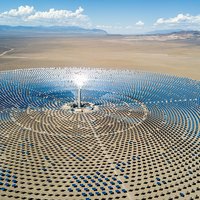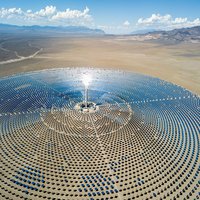Analysis of Electricity Generation in MENA Countries
Article describes preference of local stakeholders for renewable energies

Article describes preference of local stakeholders for renewable energies

The majority of countries in the Middle East & North Africa (MENA) region are committed to reducing their emissions. So far, however, little research has been done into how these goals can be translated into concrete future scenarios and how these scenarios in turn are evaluated by local stakeholders.
Based on the MENA SELECT project, research fellows Ole Zelt (Reserach Unit Sectors and Technologies) and Christine Krüger (Reserach Unit Systems and Infrastructures), both in the Future Energy and Industry Systems Division at the Wuppertal Institute, together with other researchers from the project consortium, published an article highlighting this issue for the electricity sector in Morocco, Tunisia and Jordan. The MENA SELECT project was carried out jointly by BICC Bonn International Center for Conversion, Wuppertal Institute, IIASA – International Institute for Applied Systems Analysis, Germanwatch and Europa-Universität Flensburg.
In a series of two-day workshops, the research team developed several scenarios for the electricity sector in 2050 together with relevant societal actors from the three countries. These scenarios were then evaluated using a multi-criteria analysis (MCA). Participants were also invited to include their personal assessment of individual criteria in the evaluation. The results show that local actors in all three countries prefer scenarios based predominantly or even exclusively on renewable energies.
Further information on the MENA SELECT project and the full article "Long-Term Electricity Scenarios for the MENA Region: Assessing the Preferences of Local Stakeholders Using Multi-Criteria Analyses" can be found in the links below.
